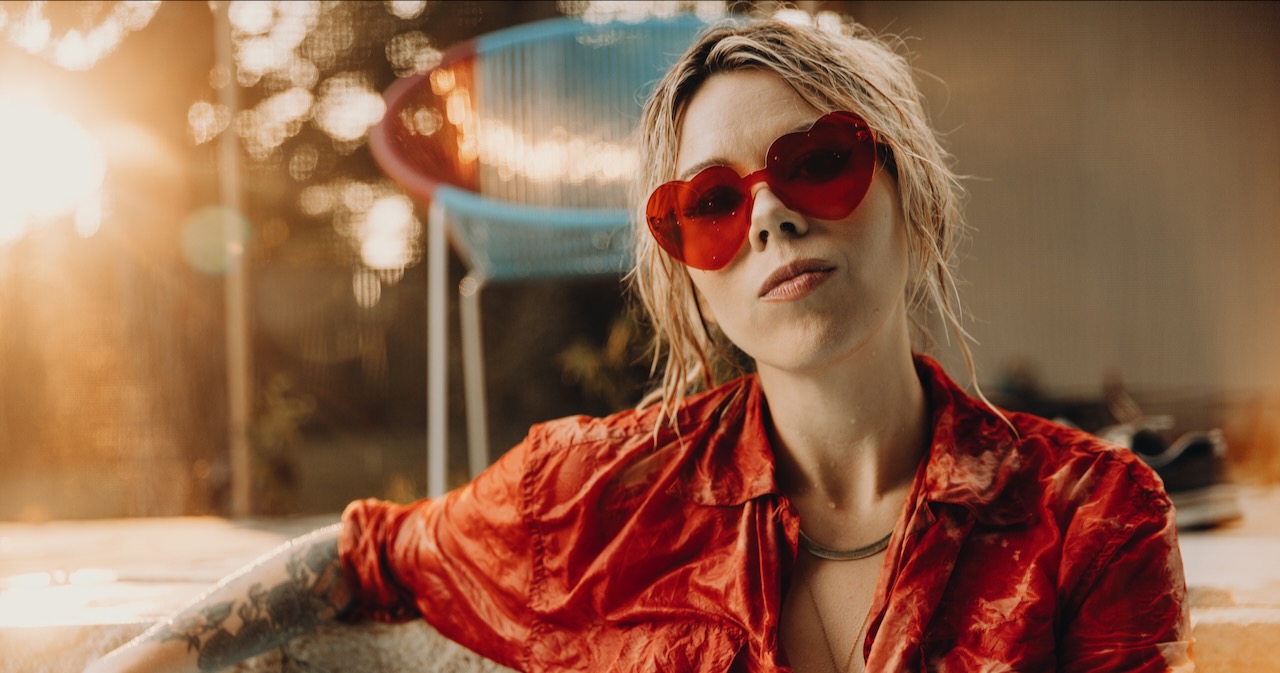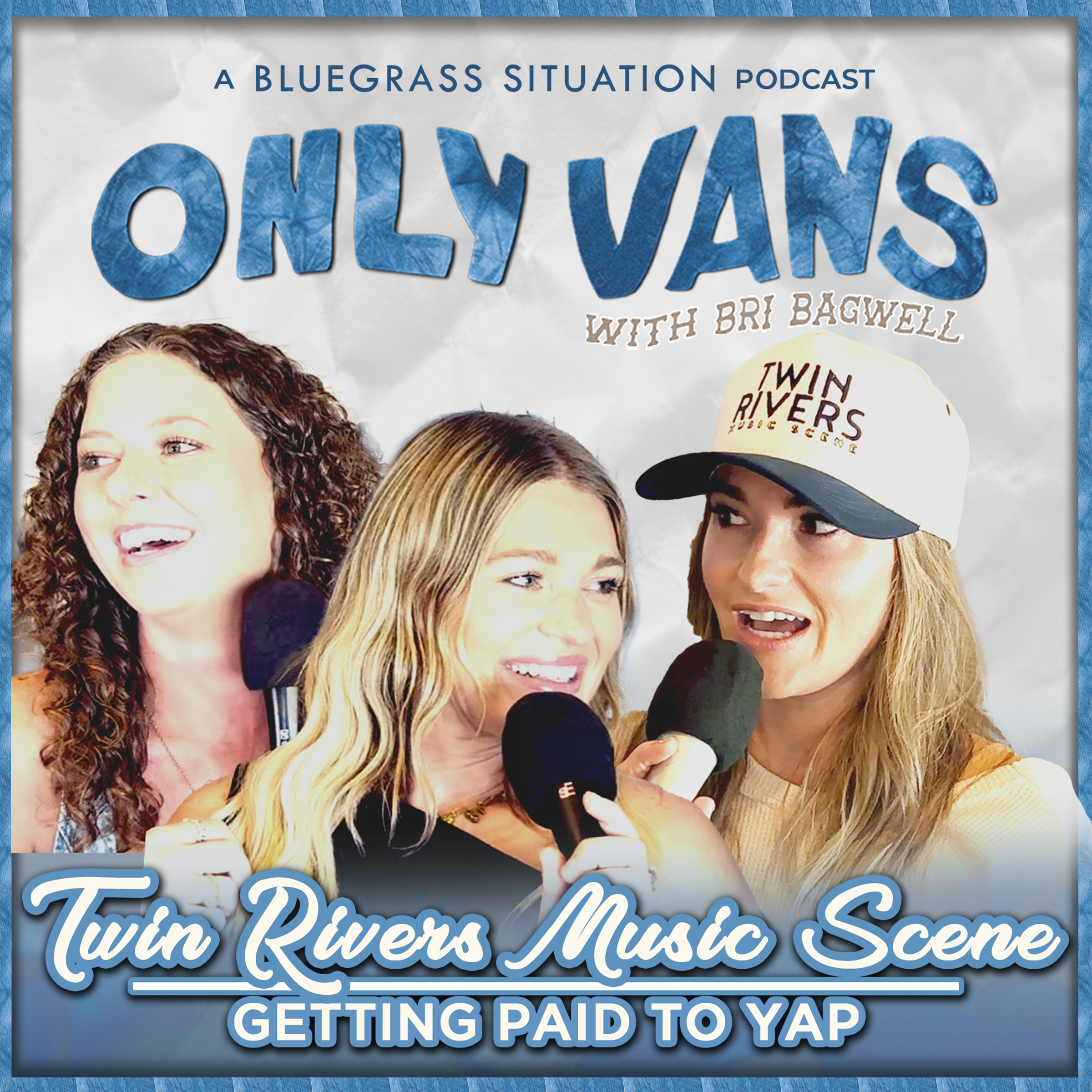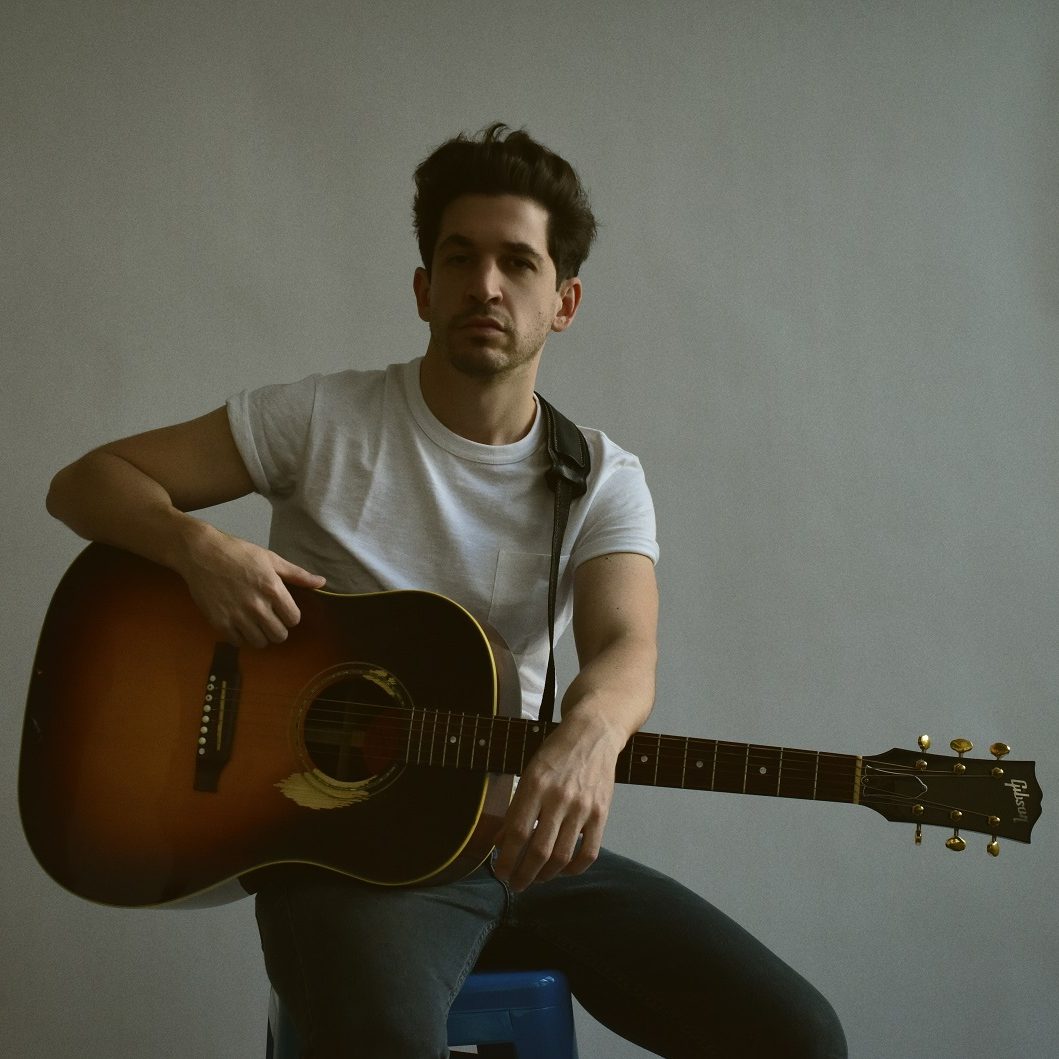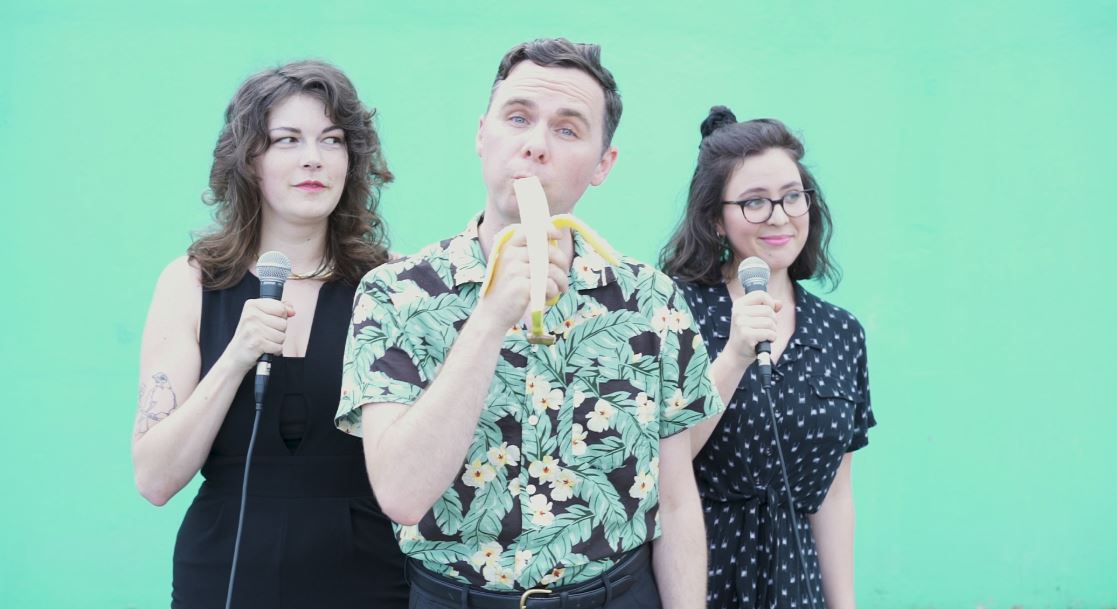Jaimee Harris is a thoughtful songwriter, a kind and quirky human, and an insightful individual. It was an honor to speak with her about her upcoming tour, the inspiration behind her songs, and how she takes care of her mental health in a demanding industry. Our conversation touches on everything from her daily routine – right down to crafting the perfect cup of coffee each morning – to how she stays grounded on the road, to the process behind her songwriting.
We dive into her haunting song, “Orange Avenue,” written about the tragic shooting at the Pulse LGBTQ+ nightclub in Orlando, Florida – a thoughtful and chilling track. We also explore the details of the title track of her 2023 album, Boomerang Town, a story song rooted in both fact and fiction. It follows intriguing characters with intricate pasts, the restless ache to escape small-town limits and achieve something big, and the soul-crushing realities of a harsh world.
I hope you can feel Jaimee’s humor, intellect, and warmth through this interview.
You have four months of touring coming up. You’re playing shows across the U.S. and you’re also headlining a tour in the Netherlands and Belgium. How does all of that feel and what are you most excited and anxious about?
Jaimee Harris: Mary [Gauthier] and I just got home from being on this incredible thing called Cayamo, which is like a floating music festival on a cruise ship. We were on that boat for seven or eight days and just got home last night. We leave again this weekend for tour. So I’m trying to pretend I’m not home right now. Because if I switch into this mentality of, “I’m home now,” then that just disrupts the system. So I’m looking at this week as if I’m still on the road. With just like a couple days off.
I’m so excited about touring the Netherlands. It’s one of my favorite places to play. It’s one of my favorite places to be. I love the people there. I love the culture there. And it’s been cool because I’ve been over there many times as an opening act, but I’ve never done my whole set there. And it’s been my experience that the people in the Netherlands can really handle and really enjoy the dark songs.
How do you find constantly being on the road? And, how do you balance that with mental health?
Well, I’ve learned that I need to have a couple of things in place to make me feel comfortable and it doesn’t take much, but one of them that is so important to me is my coffee, which might seem silly. But there’s this coffee I love from Austin, it’s called Third Coast, and Mary Gauthier, my partner, used to run restaurants in Boston and one of the only things she kept from her restaurants when she sold them to move to Nashville to become a songwriter is this industrial coffee grinder.
Every morning we grind it and make espresso and that’s like a huge part of my joy. And we bring it on the road with us. I bring a little kettle and my Hydro Flask, I’m a Hydro Flask girl.
Me too! Mine is right here! [Pulls up Hydro Flask]
Amazing! I love them so much. So the water bottle is a huge deal on the road.
Every morning when I start my day with that coffee, it sets me up for success. Having a little bit of routine to keep me tethered to something while we’re on the road is really helpful. I’ve found that I can always find 15 minutes throughout the day to move my body. Making that a priority for me helps everything while I’m on the road. I love being on the road. Today, since we just got home yesterday, I’ve just been on the couch all day. Re-entry is always hard for me. So today I’m just watching movies and being a weirdo on the couch.
Could you tell us about your recent interactions with Emmylou Harris?
I think coming off this thing we just did on the boat was incredible and Emmylou Harris is my number one hero of all time.
Her guitar tech, Maple Byrne, gave us a heads up a few weeks ago that Emmy might want me to play guitar and sing with her for this [songwriters] round we were in. I literally was driving a car in the Hill Country in Texas and I had to pull the car over and scream. I was like, “There’s no way! That’s my number one hero!” And I didn’t even believe it was gonna happen until it happened.
Earlier that day [during Cayamo], I played a show as me on the boat. Twenty minutes before I played, security walked Emmylou Harris and her friend to my show. I literally had to run to the bathroom! I was like, “I’m gonna be sick. I can’t handle this. This is crazy! THIS IS CRAZY!” I literally forgot the first two lines of the first song, because I was so in shock. I just couldn’t believe that happened and then I got to play with her later that afternoon. My wildest dreams have come true!
View this post on Instagram
You’ve mentioned Mary a little bit. What has it been like for you to find a partner, Mary Gauthier, who is both a partner in life and also a partner in music, playing shows and touring together?
It’s been incredible. I have learned so much from her about what it is to be a troubadour from the business side of things. She’s so wise, because she came to music after running three restaurants. She has a lot of business experience that she’s been able to apply to the world of being a troubadour, which is incredible. She’s been able to do what she does inside her own integrity in a way that’s really beautiful to learn from. And I get to live in a house with one of the greatest living songwriters. I truly think she’s one of the greatest songwriters of all time, and it’s made me a better writer. Just getting to watch her, how hard she works on songs. She is a real hard worker. I mean, she’s got a lot of natural talent, but she chisels and chisels and chisels songs out of the marble. And so it’s made me up my editing game.
Your song “Boomerang Town” is so beautiful and relatable and intimate; it’s a story-song format. How did you come up with the idea for “Boomerang Town” and what does that song mean to you?
It came in different stages. I’d always wanted to write a song about where I grew up. I’m from a small town just outside of Waco, Texas. I remember being in my early twenties and trying to explain to people where I grew up and I came up with the phrase, “It’s a boomerang town.” People try to leave, they end up going back there pretty quick. That phrase had been in my mind for a while.
In 2017, I got asked if I wanted to sing a verse of “This Land Is Your Land” during this 4th of July celebration. The songwriter hosting the song said, “What verse do you want?” I said I want the steeple verse. The verse is: “In the shadow of the steeple, I saw my people/ By the relief office, I saw my people/ They stood there hungry, and so I stood there asking/ Was this land made for you and me?” In my hometown, there’s an interstate, I-35, that runs through the center of it and on the east side of that interstate there’s a steeple from the Truett Seminary in town and on the west side there are two relief offices. The interstate creates a bridge and there’s been a community of people living under that bridge for decades, like my entire life.
When I saw those words, I saw my hometown. The songwriter said, “I always thought Woody got it wrong with that verse.” I couldn’t believe that he would have such a different take on that verse; that planted a little seed for me. I worked on that song for years. I tried a bunch of different perspectives. I initially started with myself and I couldn’t find a way for the song to move forward if I was the narrator. I tried it from the perspective of a veteran. Then I tried it from the perspective of a woman who worked at a cafe. I decided her name was going to be Julie, because I’m a huge fan of Buddy and Julie Miller. I finally landed on the perspective of the 17-year-old boy who worked at Walmart that knocked up his girlfriend. Which is a combination of me when I worked at Walmart and somebody else I knew. That’s when the story started to take off.
I’ve had so many experiences where people came up to me and said, “Hey, you got that song perfectly right.” Like, “My brother died under that bridge, I know all about that scene.”
Also, being a woman from Texas, with the way things are going there – nationally and politically, that song, how it ends, has a way deeper impact than I could have imagined when I wrote it in 2020. The choices women had in 2020 are more than we have now in 2025. There’s no way I could have known that when I was writing it.
You’ve just passed 11 years of sobriety. Is there anything that you’d like to share about your sobriety, your support system, and addiction in general?
Well, I couldn’t have done it without 12-step recovery. I’m very active in 12-step recovery. That’s been my lifeboat, doing it with other people. Someone in recovery said this thing that has stuck with me: “At five years, you get your marbles back. And at 10 years, you get to play with them again.” I feel like that’s true. I’m learning every day.
I remember when I first got into recovery, people would say this thing that I could not understand, “I’m so grateful to be an alcoholic.” When I got there, it was through the criminal justice system, so I was going there to get a paper signed. I was like, “What are these people talking about?” I can’t tell you how many times over the last six years I’ve said, “I’m so grateful, because I have a support system in a time when a lot of people feel really isolated.”
You spent some time in Florida in 2022 and you wrote a song called “Orange Avenue” about the 2016 shooting at the Pulse LGBT nightclub. What does this song mean to you, and what was the process of writing it?
I decided to visit a bunch of spots in Florida to collect stories and write and record a song in each town. I spent a month traveling the state. I wasn’t even gonna go to Pulse, and then somebody mentioned it and I said, “Okay, I’ll check that out.” Everything about it really floored me. I was imagining this bar being in an entertainment district, where there are a bunch of bars. It isn’t like that, it’s a neighborhood bar. So it’s just house, house, house, house, a Dunkin’ Donuts across the street, and then Pulse. Of course it was a gay bar, but it was also a bar that you could get into if you were 18 and up. So it’s also a place where younger kids could get in and just go dance and have a good time. Which is why the youngest girl that was killed was 18 years old. She was there on vacation with her family.
Now it’s been deemed a national monument. When I was there, it was kind of makeshift. There are pictures of people, notes to loved ones, poems, just all sorts of tributes. Then there’s this one kind of official-looking plaque. It has the names of 48 people that died in the shooting. To the side of it says at the request of a family, one name has been left off this list. I was wondering, what’s the story there? I looked it up and it turns out there was a man of Middle Eastern descent and his family didn’t know he was gay until he died in the shooting.
They were ashamed of that. It took quite a long time for anyone to agree to come pick up his body. That’s how deep the shame was. At the time, I believe the police chief of Orlando was a lesbian and because of the element of it being a neighborhood bar, because there were people that were there just because they could get in because of their age, they weren’t necessarily going to come out and say, “Hey, this was a hate crime.” When they found out that that family didn’t want to come pick up their family member, they said, “We have to tell the world that this was a gay bar. This was a hate crime.”
I tried the song from my perspective, but it didn’t really have the impact that it did until I put it in a perspective of that man and his ghost and what it would be like to embody that man’s experience. It was an honor to write that song.
Photo Credit: Brandon Aguilar



